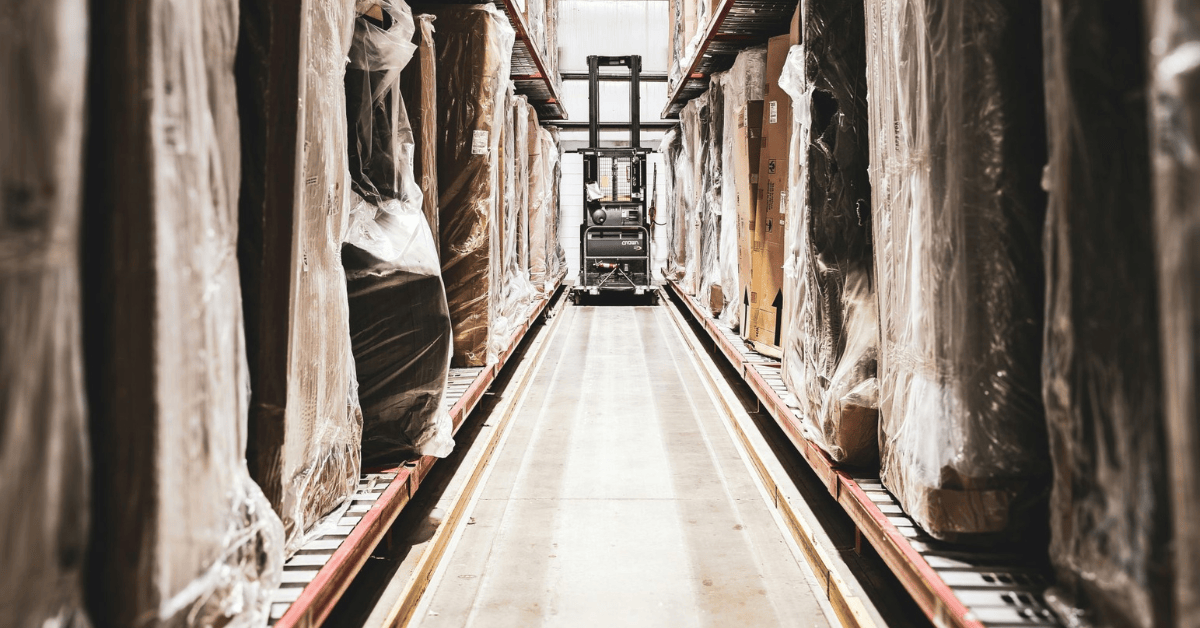Exploring the Economics of Less Than Truckload Shipping

Is LTL Freight Shipping Cost-Effective?
Less Than Truckload (LTL) freight shipping has emerged as a game-changer for businesses of all sizes. It offers a cost-friendly solution for transporting smaller shipments, eliminating the need to fill an entire truck or pay for unused space. This is particularly beneficial for businesses with fluctuating freight volumes, or those that primarily deal with smaller loads, which is often the case for moving companies.
However, the true cost-effectiveness of LTL goes beyond simply avoiding a full truckload, as there are multiple factors that can influence pricing.
In this comprehensive guide, we’ll delve deeper into the economics of LTL shipping by outlining the advantages and potential drawbacks of LTL compared to other shipping methods, as well as providing practical tips on maximizing savings when utilizing LTL services.
Understanding LTL Freight Shipping
Unlike full truckload (FTL) shipping, where a single customer occupies the entire trailer space, LTL involves combining multiple smaller shipments from different businesses into one full truckload shipment. This consolidation is the key to LTL’s cost-effectiveness – carriers can optimize space utilization and spread transportation costs across several customers. In effect, it’s carpool for freight!
Each business pays only for the space their shipment occupies on the truck, similar to how passengers in a carpool share the cost of gas. This translates to significant cost savings compared to booking a dedicated FTL truck for a smaller load.
LTL caters to a broad range of shipment sizes, typically falling between 150 and 15,000 pounds, offering flexibility for businesses that don’t have enough freight to fill a full truck but still require reliable and efficient transportation. LTL carriers also boast established networks across the country, ensuring they can pick up and deliver your shipment no matter what the start point or destination is. This extensive reach is crucial for businesses with geographically diverse clientele, or those requiring long-distance transportation for their smaller shipments.
By understanding the core principles of LTL delivery, businesses can determine whether it aligns with their specific needs. Read on for an analysis of the advantages and considerations associated with LTL shipping, and make informed decisions about your logistics strategy.
The Advantages of LTL Shipping
Less-than-truckload shipping offers a smart and financially efficient transportation solution for businesses of all sizes. But what exactly makes it such a compelling option? Here are reasons why LTL shipping might be the perfect fit for your operations:
Cost Savings
LTL shipping offers businesses significant savings by eliminating the expense associated with paying for unused space. With full truckload (FTL) shipping you are charged for the entire trailer regardless of how much you fill, whereas LTL shares the space in the same truck and spreads the cost across multiple clients, saving you money.
Flexibility
LTL carriers offer various service options, from standard delivery to expedited shipping and specialized handling. This allows you to customize your shipping needs to align precisely with your business requirements, especially if you have multiple shipments to despatch simultaneously.
Efficient Use of Resources
By consolidating shipments from multiple businesses, LTL shipping optimizes truck space and reduces fuel consumption. This translates to a more environmentally conscious and sustainable shipping solution.
Optimized Transit Times
LTL carriers operate on established routes and schedules. This predictability in transit times allows you to provide your customers with more accurate delivery estimates and effectively manage expectations.
Tech-Fueled Performance
Supply chain innovation is constantly evolving, and LTL is at the forefront. Technologies like route optimization software and automation of warehouses and distribution centers are revolutionizing the LTL landscape, translating into more competitive rates for businesses of all sizes.
Potential Challenges of LTL Shipping
While LTL offers significant benefits, it’s important to be aware of its potential drawbacks. Understanding these complexities will help you make informed logistics decisions and proactively address any issues that might arise:
Potential for Damage
LTL shipments undergo a greater frequency of reloading during the transportation process due to consolidation and transfers at terminals. While carriers take precautions, this increased handling can slightly raise the risk of damage compared to FTL. Proper packaging and insurance are essential to mitigate this risk.
Pricing Complexity
LTL pricing is influenced by factors like freight class, dimensions, weight, distance, and additional services. Understanding these factors and their impact on cost can initially be challenging, so working with a reputable carrier that is transparent about pricing is crucial.
Carrier Selection
Not all LTL carriers are equal. Choosing a carrier with a proven track record of reliability, on-time delivery, and strong customer service is paramount for ensuring a seamless LTL shipping experience.
Accessorial Charges
LTL shipments can sometimes incur unexpected accessorial charges for additional services like residential delivery, liftgates, or limited access locations. Understanding these potential charges upfront and factoring them into your budget helps avoid surprises.
What is the Average Cost for an LTL Shipment?
On average, LTL freight rates range from $50 to $200 per pallet or skid. Remember, this variability is due to factors like freight class, weight, dimensions and distance. This is why it’s essential to request quotes from multiple carriers to compare their LTL freight rates and find the most competitive pricing for your specific shipment.
How Do I Get the Best LTL Shipping Rates?
While LTL shipping offers a cost-effective option for businesses transporting goods that are too large for parcel carriers but not enough to fill a full truckload, it can be tricky to determine the true cost-efficiency given the number of factors involved. To secure the best LTL rate for your shipment, maximize savings and ensure a hassle-free shipping experience, consider these strategies:
- Optimize Packaging: Ensure your shipment is packaged efficiently to minimize its dimensions and weight, which can affect freight class and shipping costs.
- Consolidate Shipments: Combine multiple smaller shipments into a single LTL shipment whenever possible to maximize load capacity and reduce per-unit shipping costs.
- Choose the Right Carrier: Research and compare LTL carriers based on their service levels, transit times, coverage areas, and pricing. The first one you try is not necessarily the best fit for your shipping needs.
- Negotiate Rates: Negotiate with LTL carriers for volume discounts or special rates based on your shipping volume and frequency.
Is LTL Freight Cheaper?
LTL freight steps in as a budget-friendly option for businesses that need to move large or bulky items without justifying a full truckload. But does this really mean that LTL freight services are cheaper than hiring a traditional carrier?
The answer is a resounding yes. With LTL you only pay for the space your shipment occupies on the truck. This makes it a clear cost-winner compared to full truckload (FTL) shipping when your load is not enough to fill an entire trailer. Imagine paying for a whole apartment when you only need a room – LTL avoids that scenario.
However, the final cost of your LTL shipment is not a flat rate. On top of the obvious variable factors like weight, distance and fuel prices, don’t forget that the declared value of your goods will affect insurance costs, with higher premiums for more valuable contents.
By considering these factors and comparing quotes from different LTL carriers, you can secure the most attractive rate for your particular needs.
What is the Best Way to Ship LTL?
The best way to ship LTL freight really depends on your specific shipping requirements, budget, and preferences. However, you can optimize the experience by following a few general strategies.
Firstly, planning plays a pivotal role. Schedule your shipments in advance to avoid rush fees and ensure timely deliveries. Furthermore, by dedicating extra care to packaging your freight shipments properly, you’ll minimize the potential for damage, which can lead to costly claims and delays.
Carrier selection is another critical factor for successful LTL shipping. Opt for reputable carriers with a track record of reliability, punctual delivery, and outstanding customer service. To further streamline your experience, utilize tracking and monitoring tools to stay updated on the status of your shipments in real-time.
Finally, don’t overlook the power of data analysis. Regularly review your shipping data, paying attention to costs, transit times, and carrier performance. This proactive approach will highlight potential areas for improvement and reveal hidden opportunities to optimize your costs in the future.
Choosing The Best LTL Freight Carrier
Choosing the right LTL shipping experts is essential for ensuring an expedient, efficient, and cost-effective shipping experience. Here are some key tips on how to make the best decision for your business:
- Reliability and Reputation: Look for carriers with a proven track record of on-time deliveries and minimal damage claims. Check online reviews, industry ratings, and testimonials to gauge a carrier’s reputation before making your decision.
- Service Area and Coverage: Ensure the carrier’s network aligns with your shipping destinations. Choose a carrier with extensive coverage, especially if you ship to various locations, including rural or remote areas.
- Service Options: Consider the specific needs of your shipments. Do you require faster than average service, liftgates, specialized handling for fragile items, or other services? Select a carrier that offers the flexibility to cater to these needs.
- Pricing Transparency: Look for carriers that provide clear breakdowns of their pricing structure and any potential for additional accessorial charges. This transparency is crucial for accurate budgeting and avoiding unexpected costs.
- Technology and Tracking: Choose carriers that offer robust shipment tracking capabilities, providing real-time visibility and peace of mind. Opt for carriers with online tools or portals for quick and easy freight management.
- Customer Service: Responsive and helpful customer service is key to resolving any issues that may arise. Choose a carrier known for excellent customer support and accessibility when you need them the most.
- Industry Expertise: If you ship specialized goods, consider carriers with experience in your industry. Their specific knowledge and resources can offer tailored solutions, a smoother shipping experience, and help you avoid common 3PL management mistakes. These mistakes can include poor communication, lack of transparency, and inefficient processes – risks that are significantly reduced when you partner with carriers who understand your industry’s unique requirements.
The Verdict on LTL Freight: Cost-Effective and Smart
In conclusion, less than truckload LTL shipping offers an intelligent and cost-cutting approach for businesses handling smaller shipments. By understanding the factors that influence LTL freight rates and implementing strategies to optimize shipping processes and minimize costs, businesses can maximize savings and achieve a seamless and efficient LTL shipping experience.
At Armstrong, we understand the importance of efficient and budget-friendly shipping solutions. Our team of experts specializes in LTL freight management, helping you navigate this process seamlessly. We partner with reliable carriers, negotiate competitive rates, and provide the dedicated support you need to streamline your shipping operations.
If you’re ready to reap the benefits of LTL freight shipping, Armstrong is here to simplify the process. Contact us today for a personalized consultation and let us show you how we can optimize your shipping costs while delivering exceptional service.
